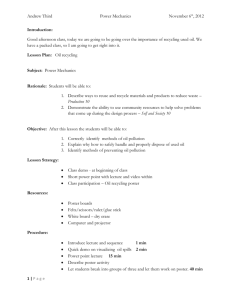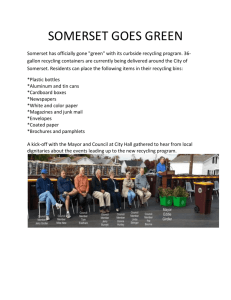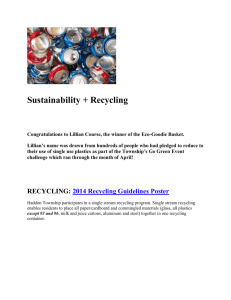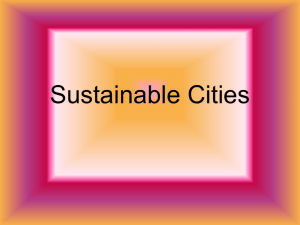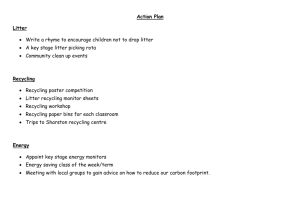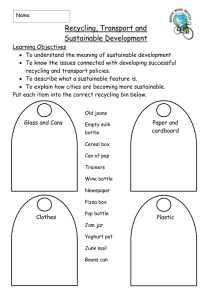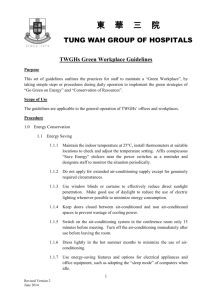environment lesson plan 1
advertisement
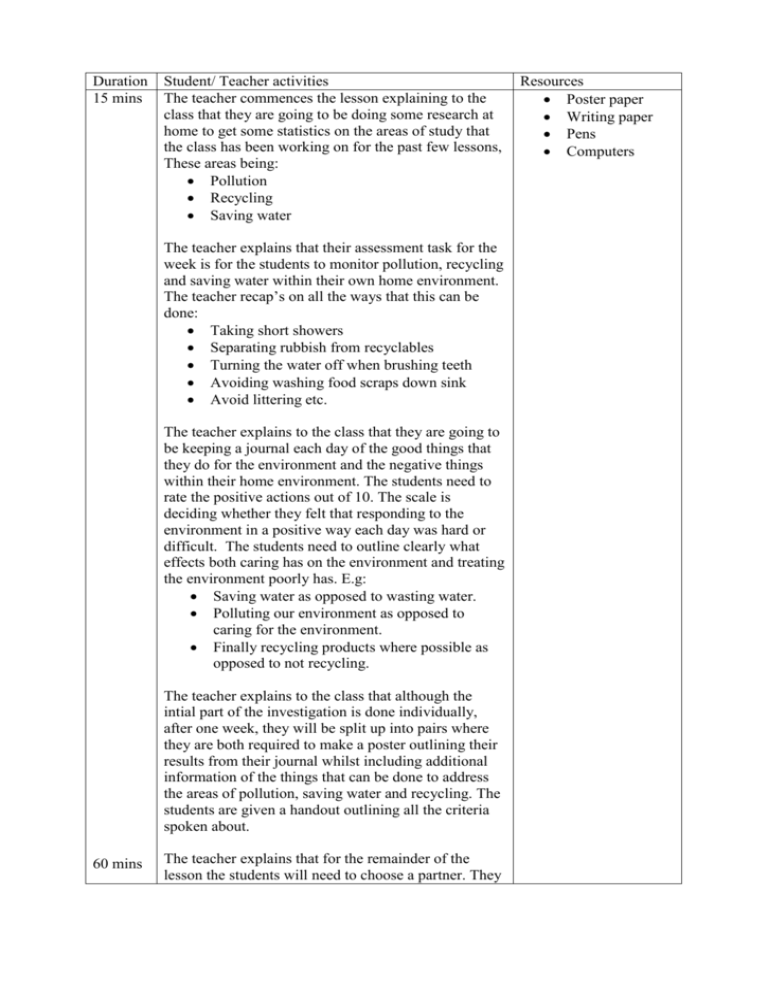
Duration 15 mins Student/ Teacher activities The teacher commences the lesson explaining to the class that they are going to be doing some research at home to get some statistics on the areas of study that the class has been working on for the past few lessons, These areas being: Pollution Recycling Saving water The teacher explains that their assessment task for the week is for the students to monitor pollution, recycling and saving water within their own home environment. The teacher recap’s on all the ways that this can be done: Taking short showers Separating rubbish from recyclables Turning the water off when brushing teeth Avoiding washing food scraps down sink Avoid littering etc. The teacher explains to the class that they are going to be keeping a journal each day of the good things that they do for the environment and the negative things within their home environment. The students need to rate the positive actions out of 10. The scale is deciding whether they felt that responding to the environment in a positive way each day was hard or difficult. The students need to outline clearly what effects both caring has on the environment and treating the environment poorly has. E.g: Saving water as opposed to wasting water. Polluting our environment as opposed to caring for the environment. Finally recycling products where possible as opposed to not recycling. The teacher explains to the class that although the intial part of the investigation is done individually, after one week, they will be split up into pairs where they are both required to make a poster outlining their results from their journal whilst including additional information of the things that can be done to address the areas of pollution, saving water and recycling. The students are given a handout outlining all the criteria spoken about. 60 mins The teacher explains that for the remainder of the lesson the students will need to choose a partner. They Resources Poster paper Writing paper Pens Computers will begin gathering information as a draft for their project. Although there are specific questions that the class needs to cover, i.e. The affect saving water has on the environment as opposed to wasting water. The affect polluting our environment as opposed to caring for the environment. The affect recycling products where possible as opposed to not recycling has on the environment. The students can also gather other information that they see relevant to the study, therefore the students are in control of finding and creating their poster within their pair. Learning Focus: Students work individually and in pairs to increase their knowledge of pollution, recycling and saving water. Learning Objective: Students monitor the individual influence they have on the environment in their own home. They are able to gather thoughts and feelings on the ease/difficulty of acting towards our environment in an environmentally friendly way. The begin developing their own ideas on being environmentally friendly whilst learning of ideas from others.


![School [recycling, compost, or waste reduction] case study](http://s3.studylib.net/store/data/005898792_1-08f8f34cac7a57869e865e0c3646f10a-300x300.png)
